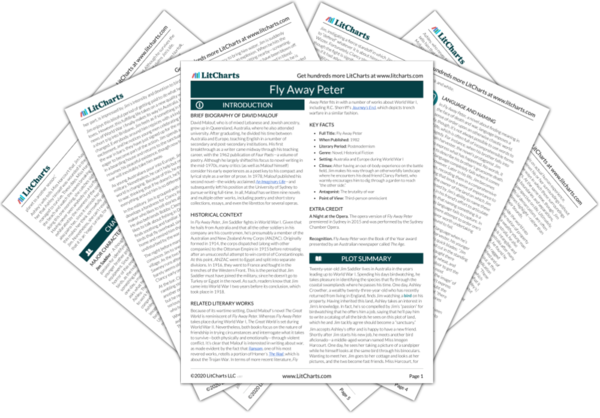Though Eric may once have seemed like a naïve young boy dressed in the clothes of a soldier, now he’s faced with a difficult predicament, one that emphasizes both his youth and his maturity. Who, he wonders, will help him in life, now that he can’t even get around by himself? This question might seem childish, but Eric is correct about the fact that he will need assistance for the rest of his life—in effect, he will never become independent, and is instead stunted by the traumatic experience of war both physically and mentally. Jim seems to sense that Eric is a mere child who has been flung into a harrowing kind of maturity before his time, and this is perhaps why Eric’s voice takes on the quality both “of a child” and of an “old man,” a tension that troubles Jim.


